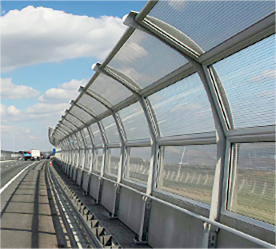Installing a Temporary Fence A Step-by-Step Guide
When it comes to securing a construction site, event, or any area that requires boundary control, installing a temporary fence can be an effective solution. Temporary fencing serves as a barrier to keep the area safe from unauthorized access while protecting equipment and materials. Whether you're organizing a festival, undergoing renovations, or managing a construction project, understanding how to install a temporary fence correctly is crucial. Here’s a comprehensive guide to help you through the process.
Step 1 Determine the Purpose and Type of Fence Needed
Before you begin the installation process, it’s essential to identify the specific needs of your project. Are you trying to prevent unauthorized access, maintain safety, or merely mark an area? Depending on your purpose, temporary fences come in various types, such as chain link, barricade, or mesh fencing. Chain link fences provide a higher level of security, while barricades are often used for crowd control at events.
Step 2 Measure the Area
Accurate measurement of the area where you plan to install the fence is vital. Take into account the dimensions of the space and any obstacles that may affect your layout. Remember to consider local regulations, as some areas may have specific guidelines regarding temporary fencing, especially in public spaces.
Make a detailed plan that outlines where the fence will be placed, ensuring that it meets all necessary safety standards. Mark the points where the fence panels will be installed, which will guide you during the setting process.
Step 3 Gather the Necessary Materials
Once you’ve determined your needs and made your measurements, it’s time to gather the materials. Here are the essentials you will need
- Fence Panels Choose panels suited for your project—these come in various heights and materials. - Base Feet If your panels do not come with a stand, you’ll need base feet to keep them stable. - Tension Wire This wire adds extra stability to your fence, especially in windy areas. - Tools Basic tools like a measuring tape, rubber mallet, and potentially a drill (if your fence requires it) will come in handy.
installing a temporary fence

Step 4 Install the Fence Panels
Begin by positioning the fence panels according to your pre-marked layout. It's essential to ensure that the panels are aligned correctly and maintain a consistent height throughout the perimeter.
1. Set Up Base Feet If your panels come with base feet, place them securely at the bottom of each panel to stabilize it. 2. Connect Panels Start connecting panels together, ensuring each is locked into place. If using chain link fencing, you may need to attach ties or clips to secure adjacent panels. 3. Use Tension Wire For additional stability, install tension wire at the top and bottom of the sections. This is especially important in windy conditions or when the fence will be up for an extended period.
Step 5 Ensure Compliance and Safety
With the fence installed, it’s essential to check that everything complies with local regulations. Ensure that the fence does not obstruct sidewalks or pathways and that it does not pose any safety hazards. If the location is prone to high winds, inspect the panels for stability and make necessary adjustments.
Step 6 Maintenance and Removal
Once installed, keep an eye on the condition of the fence. Regularly check that the panels remain secure and that there are no gaps that could allow unauthorized access. After your project is completed or your event has concluded, carefully dismantle the fence by reversing the installation steps.
Store the materials properly for future use, as many items can be reused.
Conclusion
Installing a temporary fence is a straightforward task that can significantly enhance the safety and security of an area. By following this step-by-step guide, you can ensure a properly installed fence that meets your needs, maintains safety, and complies with local regulations. Whether for construction, events, or special projects, a temporary fence is an investment in security and peace of mind.
-
Turn Down the Noise: The Future of Highway Sound Barriers
NewsApr.09,2025
-
Silence the Sound: The Power of Highway Noise Barriers
NewsApr.09,2025
-
Reduce Road Noise Effectively with Highway Noise Barriers
NewsApr.09,2025
-
Noise-Free Living: How Highway Barriers Make a Difference
NewsApr.09,2025
-
Engineered for Silence: Highway Noise Barriers for Every Road
NewsApr.09,2025
-
Effective Noise Control: Highway Barriers for a Quieter Tomorrow
NewsApr.09,2025
Subscribe now!
Stay up to date with the latest on Fry Steeland industry news.

